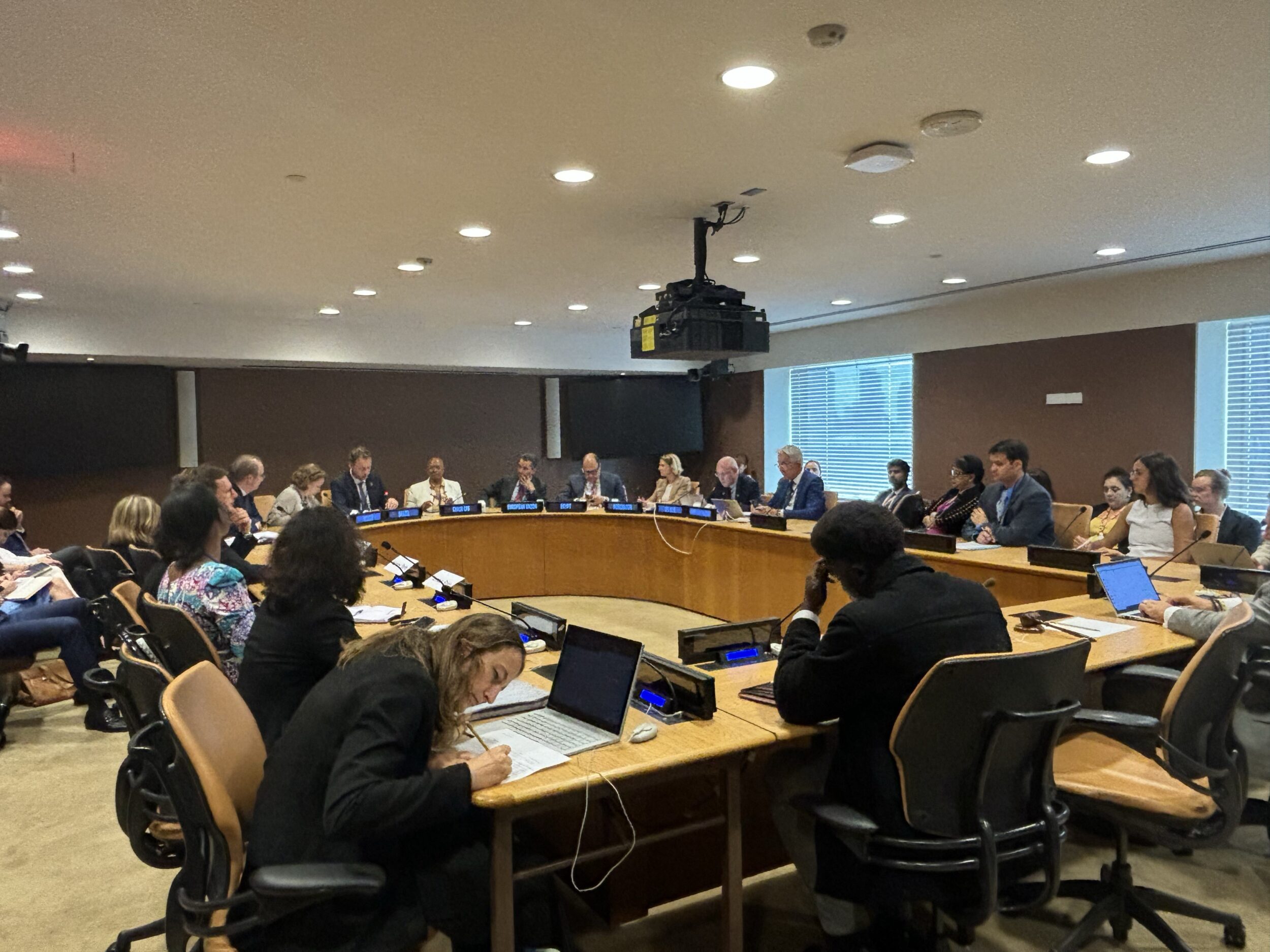ECOSOC at 80: Renewing Multilateralism in an Age of Global Uncertainty
On 23 January, the United Nations Economic and Social Council (ECOSOC) convened a commemorative session…

Under the theme “Reinforcing the 2030 Agenda and eradicating poverty in times of multiple crises: the effective delivery of sustainable, resilient and innovative solutions”, the 2024 High-level Political Forum on Sustainable Development (HLPF) opened on Monday, 8 July, and concluded on Wednesday, 17 July 2024 under the auspices of the United Nations Economic and Social Council (ECOSOC).
The 2024 HLPF reviewed in depth Sustainable Development Goals 1 (no poverty), 2 (zero hunger), 13 (climate action), 16 (peace, justice and strong institutions), and 17 (partnerships for the Goals). Further, the Forum supported the implementation of the outcomes from the SDG Summit, held in September 2023.
As a platform for reviewing the implementation of the SDGs, the HLPF is an annual opportunity for member states and all stakeholders to take stock of where national, regional, and global implementation stands, what the challenges are, how to address these, and learn from the best practices.
Although only 17% of SDG targets are on track, the discussions at the 2024 HLPF made clear that stakeholders – member states and non-member states alike – still consider the SDGs as the best path towards a fairer, more just, more equitable, sustainable, and resilient world where no one is left behind.
Discussions reflected an agreed sentiment on the need to regroup and refocus efforts and resources towards the advancement of the SDGs in a concerted manner. Some of the main issues addressed throughout the discussions include the need for reformed international financial architecture, bridging the digital divide, addressing inequalities, interlinked nature of gender equality with ending poverty and hunger, evidence-based approach to achieving SDGs and addressing multidimensional poverty, among others.
The session, which reviewed SDG 1 on no poverty, underscored the need for gender-responsive policies to address poverty and for an evidence-based approach to addressing the multidimensional nature of poverty. The session on SDG2 noted the need for collaboration with the private sector as integral to food systems transformation.
While some mentions during the discussions of the need for corporate accountability in food systems and the need to tackle fiscal injustice were made, there was general agreement that the private sector is integral to all efforts towards achieving the SDGs, in particular SDG1 and 2. Speakers called for increased partnerships and collaboration with the private sector on a number of areas, including financing, science, and technology.
The discussions at the Ministerial segment of the 2024 HLPF continued to lament the lack of progress in the implementation of the SDGs and the urgent need for accelerated action, including leveraging the Summit of the Future and its intended outcome, the Pact for the Future.
Speakers underlined that urgent action is needed to translate commitments from the SDG Summit into concrete outcomes through, among others, strengthened international collaboration and reform of the international financial architecture, with the latter being one of the resonant messages from this year’s HLPF. Further, there were calls for the Summit of the Future to reset the multilateral system to address current major challenges and identify solutions to new ones. Dennis Francis, President of the United Nations General Assembly, stressed that the Summit of the Future should be genuinely transformative, reignite public confidence, and mend the deficit of trust among Member States and between governments and peoples.
The Ministerial Declaration adopted at the conclusion of the 2024 Forum, mirrors the discussions and examines the current challenges faced through intersecting global tensions, emphasizing the inseparable link between peace, security, and sustainable development. Actions have been identified to accelerate Agenda 2030 and the SDGs. These actions recognize the intersectionality of global challenges, which thereby require intersecting solutions.
As it relates to the upcoming Summit of the Future in September, there was some concern that the Summit does not create a new set of goals but instead serves as a platform for reinvigorating the 2030 Agenda and reaching agreement on much-needed and long-called-for structural reforms, particularly in the international financial architecture. The latter is a means of rebuilding the increasing citizen mistrust in these institutions.
As the first HLPF to be held since the 2023 SDG Summit, the discussions at the HLPF and its outcome document – the Ministerial Declaration – is a nexus between the decisions made at the SDG Summit and the 2024 Summit of the Future. Member States and stakeholders alike have reaffirmed their commitment to the 2030 agenda, and the Summit of the Future is now expected to build on these discussions and commitments, to emphasize the need for multistakeholder collaboration, science and innovation, sustainability and resilience, reforms in the international financial architecture and indeed for reform of the global multilateral governance systems to rebuild trust with the global populace.
Building on the 2024 HLPF, the Pact for the Future is now an opportunity for global commitment and action towards collective responsibility towards transformative change.